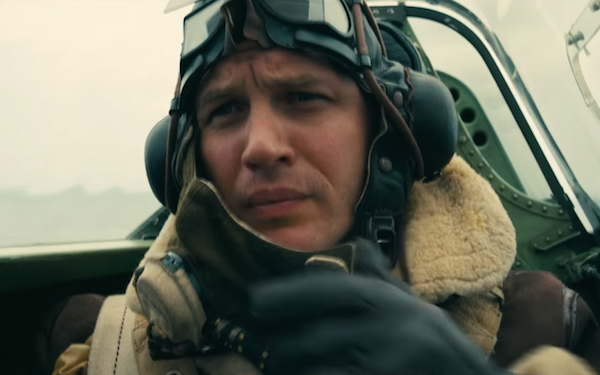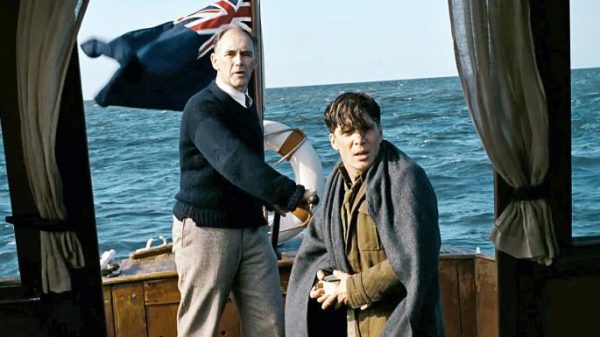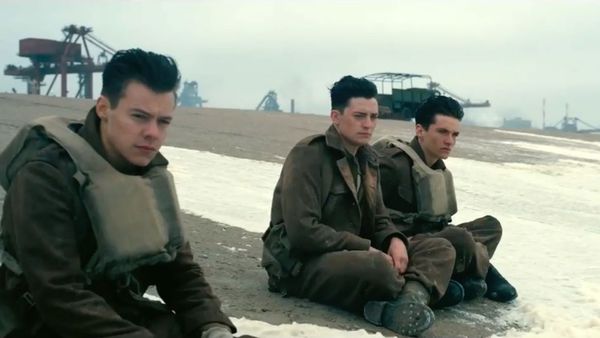Dunkirk Review
Imagine interviewing three different soldiers who all survived the same battle but experienced it from different vantage points, and asking them to tell their story. That’s the narrative feel to Christopher Nolan’s “Dunkirk,” a technical marvel of a war film with one simple aspiration: capture the feeling of helplessness in one of World War II’s most dismal moments and depict within it small stories of bravery and survival.
No one doubted Nolan’s ability to make a beautiful, gripping sensory experience of a war film given the visual achievements of “Inception,” “Interstellar” and “The Dark Knight Trilogy,” especially given Nolan’s commitment to practical effects and serious stuntwork. What’s surprising is his script, which unlike the aforementioned titles, has been nearly stripped of exposition and does not involve an intricate and complicated web of story lines steeped in science fiction, ready to be picked into pieces by skeptics. It’s the complete opposite.
Sure, “Dunkirk” does weave in essence three major stories together (and he does play with their chronological order a bit just because he can’t help himself), but the film has no insane twists or mysteries to be cracked. What we see is what we get: a young man (Fionn Whitehead) tries desperately to get off the beach and rescued; a mariner (Mark Rylance) takes his personal boat across the channel to heed the rescue call at Dunkirk with his son and another local boy; and a squadron of pilots (one played by Tom Hardy) trying to take down German planes before they can bomb more boats and soldiers.

These story lines are part of a constantly rotating carousel and they eventually converge to create a complete and rather stirring picture of this battle/rescue mission. That convergence doesn’t have the emotional resonance of a film that dedicates itself to telling one story in a traditional manner, but considering how tedious the rotation of stories gets, the payoff is almost unexpectedly pleasant. Despite never intimately acquainting us with his characters, Nolan manages to tell their stories with enough human acuity that we’re compelled to root for their survival.
That’s no simple feat, and it’s part of what makes “Dunkirk” both a great film and a supremely disappointing one. What he manages to accomplish given the non-traditional structure of his film should count for something, though many audiences will surely wish he swept them up in a classic Hollywood war plot echoing themes of human courage and perseverance in a raw, moving way. Instead, he espouses those themes with a quiet, grim dignity that likely honors the survivors of Dunkirk in its own way, one that doesn’t entirely glorify them but speaks to their truth.

Like Nolan’s previous films, “Dunkirk” is big and loud, but artistically speaking. Dialogue gets lost (somehow Tom Hardy delivers lines into an oxygen mask, again) and the gunshots are disturbingly loud and anxiety-provoking. But in the context of a war film that’s not reliant on dialogue to be understood (there isn’t much talking period), there’s value in Nolan’s approach. He thrusts us into the scene with this intense sensory experience to the point that not empathizing with the characters to at least some extent is nearly impossible.
“Dunkirk” can’t claim to be the most emotional or powerful war story ever told, but it can claim to be unique in a genre that has no shortage of clichés and retreaded themes and storytelling devices. Nolan has created a big war movie, but a restrained one. Crafting a movie with gunshots that sound like they’re happening inside your head doesn’t usually classify as restrained, but his approach to depicting the events at Dunkirk in 1940 has a degree of frankness and perhaps even modesty from a human standpoint. It’s not an easy film to celebrate, but it’s beyond easy to admire and respect.
4.5/5 Stars
Dunkirk
Written and Directed by Christopher Nolan
Starring: Fionn Whitehead, Tom Hardy, Mark Rylance





1 Comment